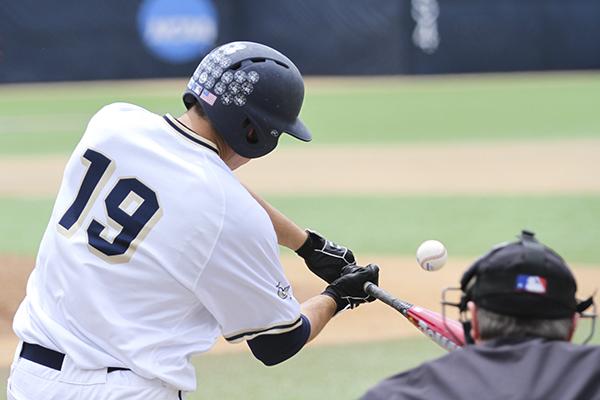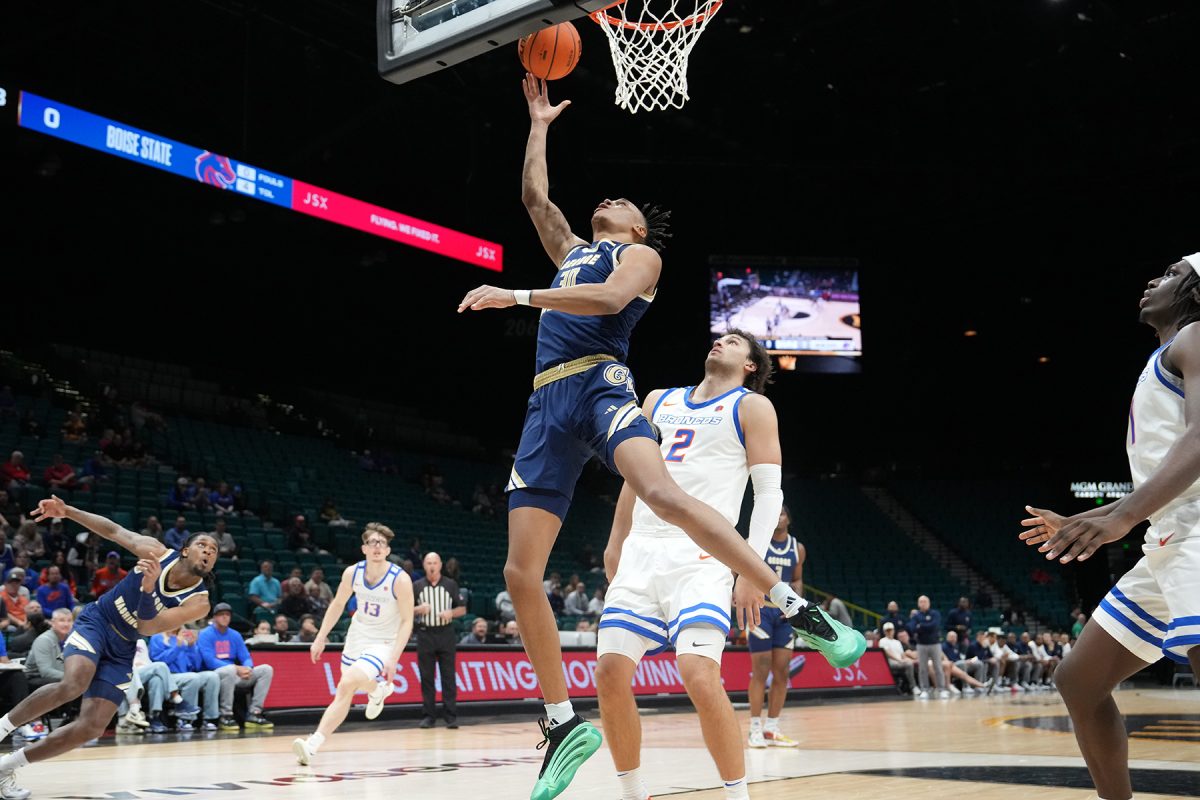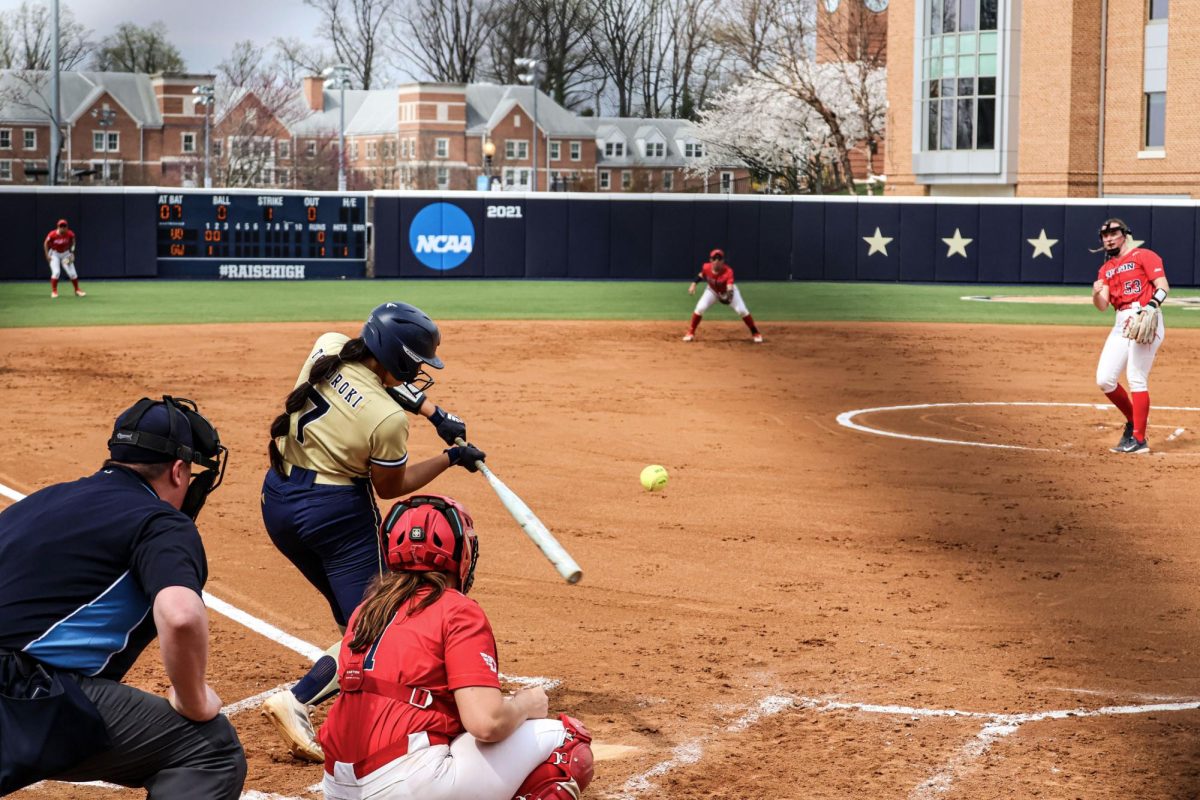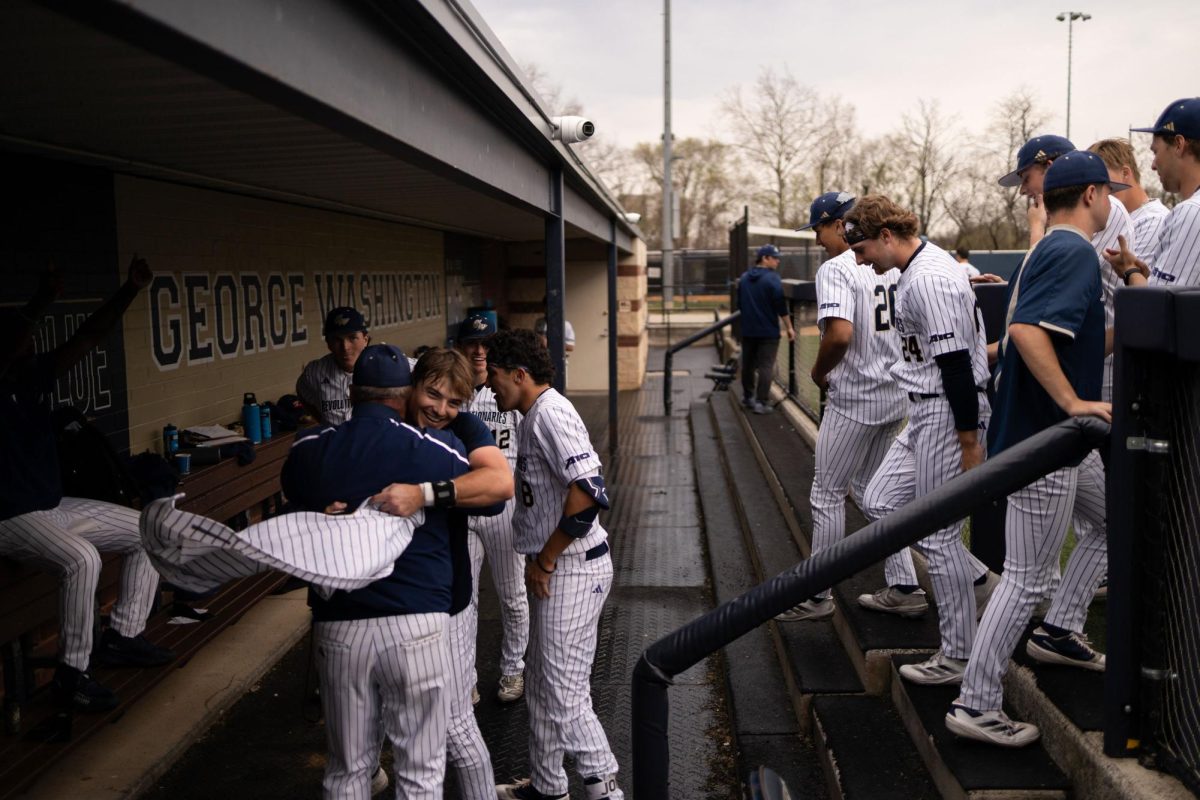Perched at the top of the dugout steps, head coach Gregg Ritchie starts directing traffic in the ballpark after the first pitch of the game.
He will shift his outfield, infield and anyone else willing to look at his hand signals, it seems, playing by the numbers to each situation’s particular advantages.
The former Pittsburgh Pirates hitting coach and professional baseball player seems more like an old-school, big-talking kind of baseball guy than a cutting-edge statistician. The only visible manifestation of advanced baseball statistics in his game plan is his impression of an air traffic controller at the airport.
But he has less obvious statistical obsessions beyond playing chess with his defense, and one of them – strikeout rate – has been critical in helping GW’s offense take off.
In 2012, before Ritchie began managing the team, the Colonials finished 6-18 in the Atlantic 10 and struck out a hefty 7.6 times per game. But since Ritchie came back to his alma mater, that stat has plummeted. In his first two years, GW hitters struck out 4.1 times per game in the regular season – the best in the nation for both years. The Colonials sit at 5.09 so far this season, with the head coach saying he’d prefer the number to drop even further to three or four per game.
“The philosophy behind it is simply this: you put the ball in play, you got a chance to win more games,” Ritchie said. “You don’t put the ball in play, you can’t score runs because every time you punch out, if there’s a base runner on base, he’s not going anywhere and this game is about 90 feet. It’s a 90-foot war is what it is.”
That has been Ritchie’s mentality since he was a kid, when his father and other coaches taught him the game. He said when he eventually became a coaching, he realized what made the strikeout so frustrating to him: the loss of an opportunity to advance a runner.
Richie cites the statistic that in at least 42 percent of at-bats a baseball player takes at any level, he will be in a two-strike count at some point during the at-bat. Hitters typically bat under .200 in two-strike counts.
A look at the season statistics from the games this year shows how valuable not striking out is to increasing the likelihood of GW’s success. The Colonials are not a consistent power-hitting team. Ritchie will bunt nearly anyone in his lineup, even if they are batting cleanup, because he said no one is at that point yet where they can reliably drive the ball deep. Instead, the key to the offensive strategy is having smart at-bats that increase the likelihood of reaching base – in other words, avoiding the dreaded K.
Almost all of GW’s losses this season have come when their walk-to-strikeout ratio is near or below one. The team’s biggest wins have come when players are walking much more than they are striking out.
In the two games where they struck out by more than 30 percent of their at-bats, they lost by more than five runs. In nine of 10 other losses this season, they struck out in about 20 percent or fewer of their at-bats, which is a fairly good ratio, considering that would equal about four to five strikeouts per game. Perhaps not too surprisingly, 12 of their 23 wins were in games that they went down by strikes in less than 15 percent of their at-bats.
GW has won six games by five runs or more. In half of those games, about 10 percent of their at-bats ended in strikeouts. In the other half, that number was about 20 percent.
The split could be explained by the potential, in some of those games, for getting the big hit-making hitters more likely to take a risk with a big swing if the payoff could be several runs. The Colonials’ on-base plus slugging percentage is up and they have already doubled their home run total from last season.
“There is a balance between striking out and driving the ball and staying aggressive enough,” Ritchie said. “You have to understand what your balance is when you are a team.”
Ritchie has used that balance as a guiding principle while coaching some of the best hitters in the pro game and bringing a once-mediocre GW offense to the top of some of the nation’s most significant statistical marks.
“The bare bone situation, the one thing you have to do before you do anything else – whether it be hit a home run, a double, bunt the ball, do this, that and the other – is be able to handle the barrel,” Ritchie said. “When you’re talking about handling the barrel, that means you better learn how to put balls in play consistently.”







